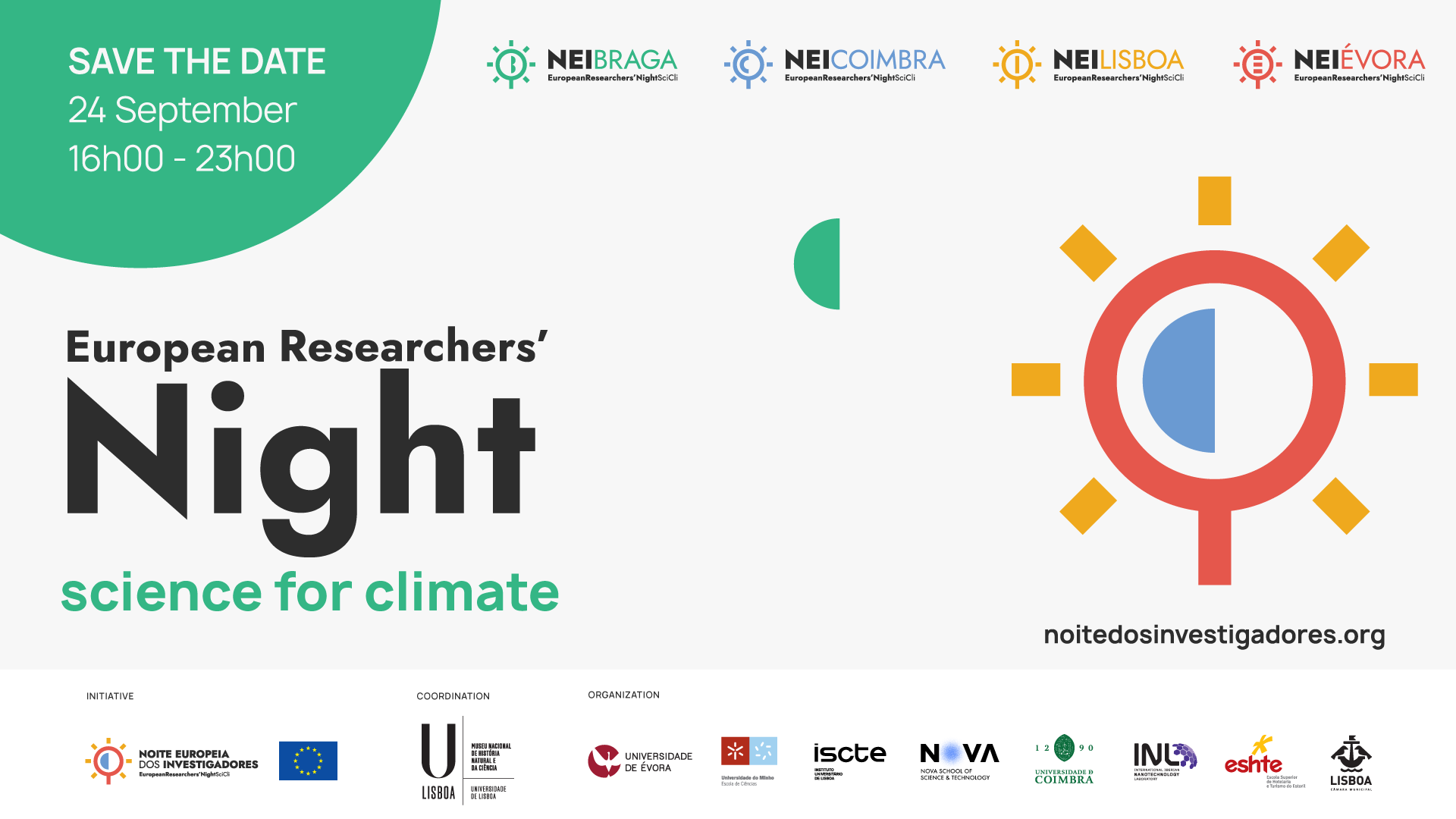European Researchers' Night returns in September with “Science for the Climate”
The European Researchers' Night 2021 (ERN 2021) will be back in Portugal, under the theme SCICLI – Science for Climate, within a national consortium coordinated by the University of Lisbon, through the National Museum of Natural History and Science (MUHNAC), which also integrates the INL – International Iberian Nanotechnology Laboratory, and the School of Sciences of the University of Minho.
The initiative will take place on September 24th, between 4 pm and 11 pm, with a national online program and local activities in Lisbon, Braga, Coimbra, and Évora.
The theme of the European Researchers' Night 2021 in Portugal is in line with the European Ecological Pact, also known as the Green Deal, which calls for a neutral impact of human activities on the climate until 2050, through the promotion of initiatives that protect the environment and boost the green economy, while reducing the pollution.
The SCICLI proposal for NEI 2021 is based on the social, economic, and environmental dimensions of sustainability, promoting the relevance of science and research for climate neutrality.
The SCICLI initiative brings together different areas and scientific institutions that will communicate the Science they do and involve the public, not only during the European Researchers' Night but also in the preparatory activities that will be disseminated in the meantime.
The SCICLI NEI2021 project is aimed at all age groups, with special attention to young people, encouraging them to actively contribute to solutions through the choice of careers in Science.
The European project consortium includes as partners the National Museum of Natural History and Science of the University of Lisbon, the Nova School of Sciences and Technology of the Universidade Nova de Lisboa, the Iscte - Instituto Universitário de Lisboa, the Municipality of Lisbon, the Estoril School of Hospitality and Tourism, the INL – International Iberian Nanotechnology Laboratory, the School of Sciences of the University of Minho, the University of Évora, and the University of Coimbra.

